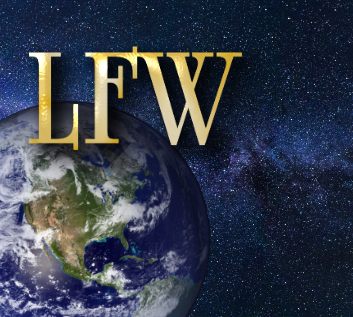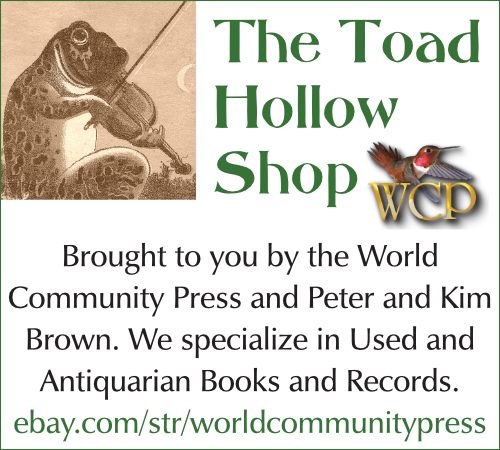Love, Democracy and the Survival of the World Jan 28, 2008 Is there any reason to hope that we, as individuals, can impact the world by walking the path of love? Can one person make a difference? It’s easy to adopt a nihilistic and hopeless view of the world, and many have done so. Some people feel helpless because of beliefs that the world will come to a violent end. The ancient Mayan calendar has been getting more attention recently because it predicts that the world will end in December of 2012. Many Christians believe that the apocalypse will arrive and leave vast numbers of unfortunate souls behind, to writhe in agony in a world gone mad. Geopolitical types get ulcers worrying about a nuclear holocaust initiated by radical Islamic terrorists. They have very good reasons to worry in the post 9/11 world. Diseases threaten us and global warming promises to fry us. In the midst of what might seem like our inevitable doom, why bother with trying to impact the world with a few random acts of kindness? One doesn’t want to simply straighten the chairs on the Titanic, as it sinks beneath the waves. Now that I may have thoroughly depressed some of my gentle readers, let’s consider some reasons why the world may survive the threats mentioned above. The most concrete evidence that the world will survive is that it has endured until now. Although knowing what has happened in history is an area of study severely under attack in American schools (as reported by The Lexington Institute in their article “The Multicultural Assault on United States History”, at “http://lexingtoninstitute.org/1213.shtml”), it is in the records of historical suffering that we can gain optimism about our future. Professor Rudolph J. Rummel has extensively researched the history of “democide”, his term for “the murder of any person or people by a government, including genocide, politicide, and mass murder.” He has concluded through his research that it is democracy that has moved the world away from “murder by government”. His “Power Kills” website at “http://www.hawaii.edu/powerkills/” displays a Democratic Peace Clock (DPC) that shows that the world has made significant progress toward global democracy. He predicts that “... 90 percent of the world's people will become democratic in the second quarter of this century. Then the DPC will be at 10:40AM, an hour and twenty minutes before noon. And war and democide will be near an end for humankind.” Rummel’s research reveals some staggering and horrific numbers. He estimates that pre-20th century governments murdered between 89 million and 260 million of their citizens. Even more shocking is that in the 20th century alone, over 262 million people were killed by modern governments. A very large number of those deaths were victims of communism. Lest someone think that it was the “Imperialist West” that caused the greatest number of deaths in history, it is interesting to note that China was the biggest offender both before and after the year 1900. This by no means lets the West off the hook, for Rummel correctly includes the democide of the American Indians as one western example of democide. His definition of democracy is strict, stating that there were no true democracies in the year 1900, for “civil and political rights were universally restricted. Even in the USA, women could not vote (that alone eliminates from voting about 50 percent of the population) and the laws severely restricted the votes and other rights of blacks.” Yet now, in the 21st century, democracies are multiplying exponentially. He states, “As of 2001, The Gambia entered the list of democracies, raising the number to 121 electoral democracies out of 194 countries. There are 86 liberal democracies enjoying civil and political rights.” His conclusion is that “democracy is a method of nonviolence” and that based on democracy's growth, universal peace will indeed arrive. From this historical evidence, we can see that the world is becoming more and more enlightened. The zeitgeist, or “spirit of the age” is moving ever more rapidly toward a higher standard of unselfishness. One could say that the Mayan calendar’s prediction of the end of the world simply signifies the end of the selfish world. In support of the theory that the year 2012 will begin a “Golden Age of Enlightenment”, some intuitives have taken note of an astronomical event called the “Venus Transit”, that seems to coincide with expanded capacities of communication between human beings. The Venus Transit occurs when the planet Venus crosses in front of the sun. There have been only 82 Venus Transits in the last six thousand years. They come in pairs, with eight years in between. The last transit was on June 8, 2004, and the next one will be on June 6, 2012. The Global Oneness Commitment, a project initiated by the Global Oneness Foundation in Stockholm, Sweden, and the Times Foundation in Delhi, India (on the web at “http://www.experiencefestival.com”) is predicting that the Venus Transit in 2012 will signal a breakthrough in intuitive awareness that will help transform humankind. The threat of radical Islamic terrorists is a threat of evil actions, carried out by human beings. Our hope to overcome that threat ultimately centers on our ability to reach and transform their hearts, so that they no longer wish to act violently. Until the hearts and minds of radical Muslims and members of other violent subcultures are transformed from within, we will not have true security in the world. There has been a tremendous disconnect between individuals who believe in “peace” and in loving one’s enemy, and those who believe that forceful defense is sometimes required to maintain the peace. Who can argue that the ultimate solution for a peaceful world is an “internal” solution, based on unselfish love? It is both an ethical solution and a religious one, for discussion of God is never far away. Yet, can those who believe in peace sit idly by, while our “brothers and sisters under God” are being victimized by totalitarian regimes? If we had not fought Hitler, he would have murdered far more than the twenty-one million his regime killed in just a few short years. Defending those who are attacked cannot be seen as “anti-peace”. It is unfortunate that the United States has not been able to adequately grasp the need to reach the hearts of Islamic leaders and citizens. Military and political action is sometimes necessary. However, it is not enough. It is time for the White House and Congress to include deeper ethical solutions stemming from the needs of the human heart. These are not sectarian or denominational issues. “Unselfish love” can be inserted into public policy without violating the separation of church and state, if it is done under the banner of ethics. How do we cope with the religious view that the world is going to end in an apocalypse? What about the threat of plagues, massive disasters and global warming? How does one “defend” the world against so-called “acts of God”? It seems to me that the most sensible approach is to live each day as if the physical destruction of civilization by acts of God will not happen. It may not be possible to make much headway against religious dogma that states that the apocalypse is imminent, but can we not argue that all the evidence suggests that God wants us to succeed in our attempts to build a world of peace? Many people believe that it is God who inspired the tremendous surge of technological inventions in the last hundred years. Why would he bother if He was planning to wipe us out? Since God must be the historian with the longest memory, and most extensive knowledge of where we came from, as a human race, it makes sense that He would be genuinely inspired to see so much progress in the realm of democracy and the growing paradigm of unselfishness. Then, what can one person do to impact the world? Professor Rummel clearly elucidates that all-powerful tyrants were often the direct cause of the deaths of millions. Conversely, giants such as the world’s religious founders, and people like Mahatma Gandhi, impacted the world in a healing process that has rippled across centuries. What can a person do if he or she is not a world leader? Can one person, however insignificant, make a difference? How do we impact ourselves and the world by walking the path of love? By transforming ourselves into individuals of true love and unselfish service, we will begin to resonate with the primary principle of the universe. By waking up each day, and praying that on this day, we can express God’s love to His children, we enter into a powerful current of God’s love that permeates everything. It is very similar to turning on a light switch. The more we walk the path of giving love to others, the more alive we feel, and the happier we become. We may not know how we have impacted the world until much later. If someone had loved Hitler at just the right moment of his life, would he have changed his direction? The ripple effects of our acts of true love have a mysterious and infinite power that reaches far beyond our physical senses. Dr. Masaru Emoto, Chief of Tokyo’s Hado Institute, has done amazing research about the power of words to create beautiful or ugly water crystals, depending upon the meaning of the word. He defines “hado” as “the intrinsic vibrational pattern at the atomic level in all matter. The smallest unit of energy. Its basis is the energy of human consciousness.” The Hado website, at https://www.hado.net, states, “What has put Dr. Emoto at the forefront of the Hado phenomenon is his proof that thoughts and feelings affect PHYSICAL reality.” His books of photographs of water crystals are available in major bookstores in the US, and clearly show the impact that we can have on our physical surroundings. If we can influence water crystals by taping the word “Love” on a jar of water, we can surely love and inspire our fellow human beings by our thoughts, words and acts of loving kindness. I once was offered a sandwich and a glass of soda by a checkout girl who saw me sitting behind a grocery store with my head on my knees, completely depressed. I think she may have forgotten that act of kindness twenty-nine years ago, but I never will. To me, her act of service was a direct gift of love from God. It helped convince me that I was loved. God worked through her that day, and through many other people throughout my life, to lead me to the certain knowledge that walking the path of love is the most important thing that I can do. It is a path that is often difficult. It requires effort and thought and awareness, but it is indeed its own reward. Imagine a world where everyone wakes up each morning and plants their feet on the path of love. There is every indication that we won’t have to imagine that world much longer. Our vision of love will have become a reality. (Comments are moderated and must be approved.) “The Epiphany of Zebediah Clump”
Watch our first film right here. |









